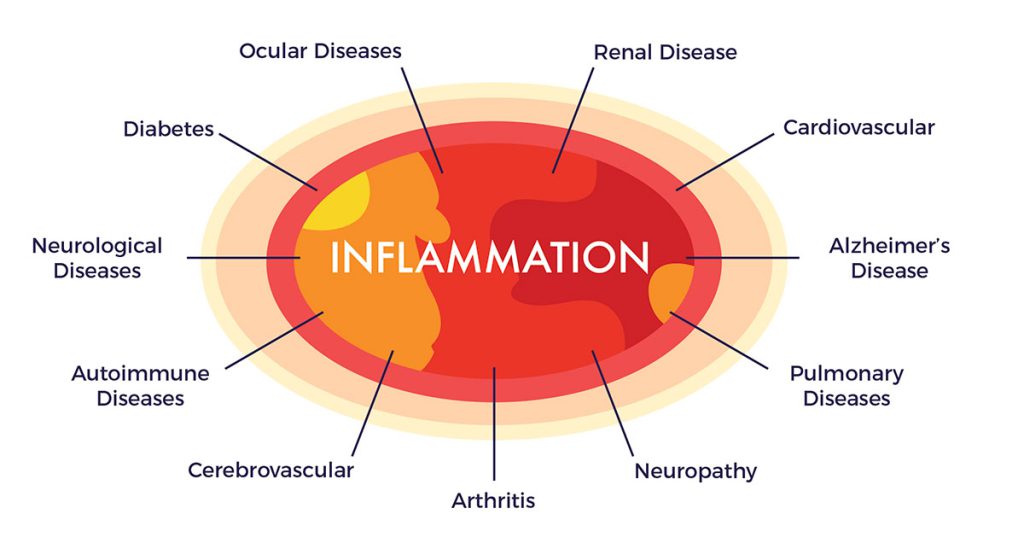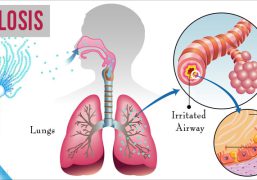Inflammation
Inflammation is a natural response of the body’s immune system to injury, infection, or other harmful stimuli. It is a complex process that involves the release of various chemicals, such as cytokines and prostaglandins, that cause swelling, redness, heat, and pain at the site of the injury or infection.
While acute inflammation is a normal and necessary process for healing, chronic inflammation can be harmful and has been linked to a number of health problems, including arthritis, heart disease, and cancer.
There are several ways to manage inflammation:
- Medications: Nonsteroidal anti-inflammatory drugs (NSAIDs), such as ibuprofen or aspirin, can help reduce inflammation and relieve pain. In some cases, steroids may be prescribed to reduce inflammation.
- Diet: A diet rich in fruits, vegetables, whole grains, and healthy fats, such as omega-3 fatty acids found in fish and nuts, can help reduce inflammation. On the other hand, a diet high in processed and sugary foods may contribute to inflammation.
- Exercise: Regular exercise can help reduce inflammation by promoting the release of anti-inflammatory chemicals and reducing fat, which can contribute to inflammation.
- Stress management: Chronic stress can contribute to inflammation, so it’s important to find ways to manage stress, such as through meditation, deep breathing, or yoga.
Sleep: Getting enough sleep is important for reducing inflammation, as lack of sleep can contribute to chronic inflammation.






